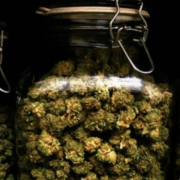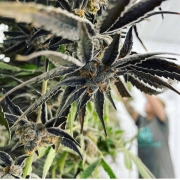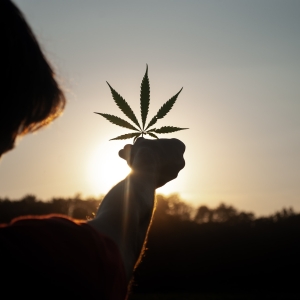Will Michigan’s Medical Cannabis Market Disappear?
 The Green Market Report shares an excellent in-depth exploration of Michigan’s vanishing medical marijuana industry:
The Green Market Report shares an excellent in-depth exploration of Michigan’s vanishing medical marijuana industry:
The portion of the cannabis business that stood up legal weed in the state is now at its lowest point since its inception in 2008, according to data from the Cannabis Regulatory Agency. Sales crept to just $6.14 million in July, down nearly 71% from a year ago and down 86% from July 2022 when sales reached nearly $43 million. The cost of an ounce of medical marijuana is down 52% over the last 12 months to $102.03, but consumer pricing is only part of the cost conundrum.
…The reality is there are fewer dispensaries selling medical marijuana as demand for adult-use recreational marijuana dominates — recreational sales totaled $270.6 million in July, compared to $188.8 million a year ago. And with those prices near historic lows, it’s simply easier and cheaper for all consumers, recreational or medical, to purchase marijuana on the recreational side of the business.
“For us, it’s expensive to maintain both licenses and follow both sets of rules,” said Ankur Rungta, CEO of Ann Arbor-based C3 Industries, a vertically-integrated company with a grow operation in Webberville and 13 High Profile Cannabis Shop locations across the state. “It’s a tighter market right now and managing costs is critical. As the market shrinks, it just makes less and less sense (to sell medical marijuana).
The state had more than 251,000 registered marijuana card holders in July 2021, making Michigan the largest medical marijuana market of the time, according to data from the CRA. Of those card holders, nearly 61% of the cards were issued for chronic pain and more than 22% for arthritis.
But plummeting recreational prices started cutting into those sales. Recreational wholesale prices had almost reached parity with medical marijuana by July 2021 and continued to crash, reaching as low as $80.16 an ounce by January of this year. The result was fewer and fewer people maintaining their medical marijuana cards. As of July 31 this year, state data shows Michigan has shed more than 100,000 medical card holders, dropping to 141,005.
“There used to be some meaningful advantages for a medical card for consumers – lower taxes and higher purchasing limits,” Rungta said. “But those advantages are less important as overall prices come down.”
…There are still good reasons to maintain a medical marijuana market, and Schulman said it has nothing to do with money.
“What if they encounter the law or have a job with drug testing?,” Schulman asked. “Cannabis still isn’t like other medicine because of the stigma. If they keep a medical card, they are less likely to face drug testing from their employer, and for those that picked up for DUIs and are found to have marijuana in their system, they get hit with that whether they were high or not. People are still threatened because of marijuana use.”
…Rungta said the medical market in Michigan or elsewhere won’t survive until medical marijuana becomes more legitimate as medicine, not just as a recreational drug with a medical backdoor.
“For medical to really drive a comeback, there would need to be differentiation. It’s the same product, essentially, on both sides (medical and recreational) of the business. We’re just not there yet,” Rungta said. “It has to come through R&D. A product that’s something closer to medicine and more data-driven evidence to support it.”
Lots more in the Green Market Report. For sure if you are interested in the future of medical cannabis in Michigan, join the Michigan Cannabis Trail, Michigan Weedsters and a host of Michigan cannabis patients, cannabis caregivers & cannabis businesses at the State Capitol on Thursday, September 28th for the Michigan Grown Harvest Rally.











